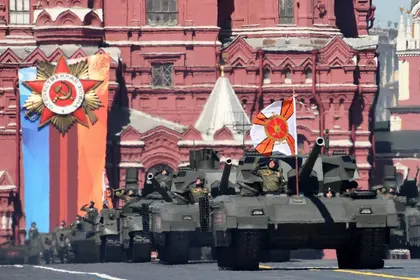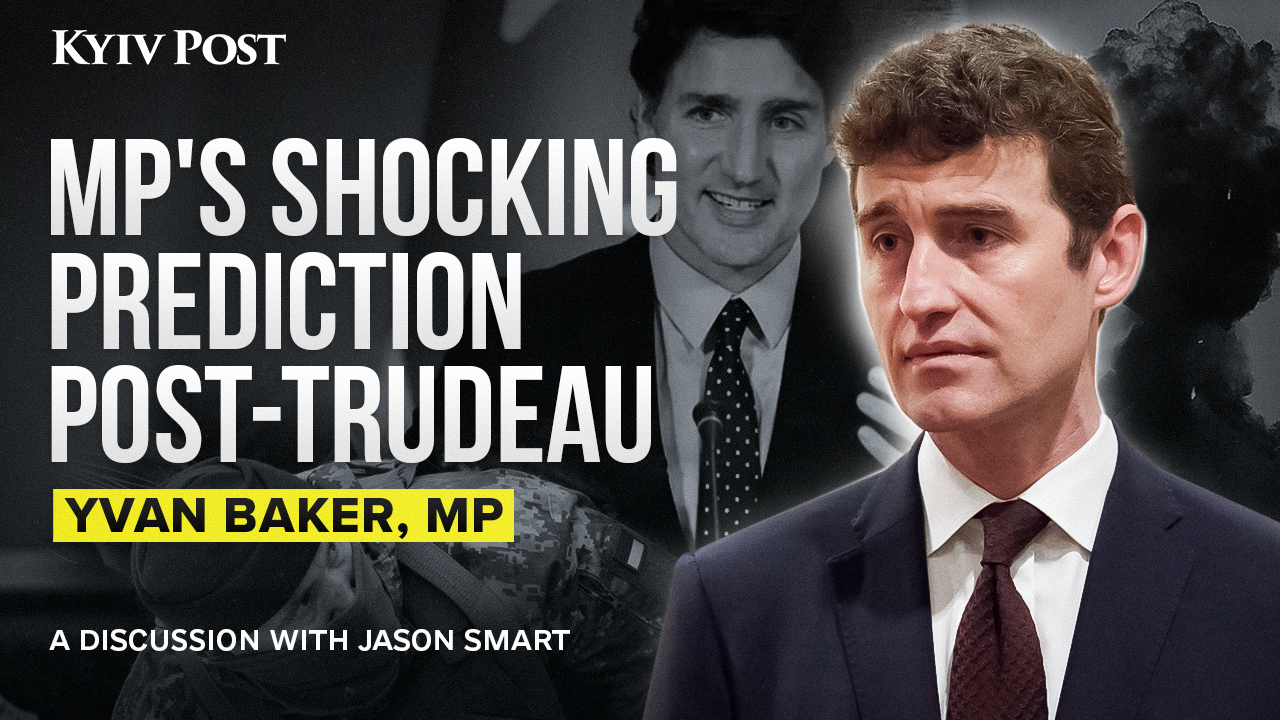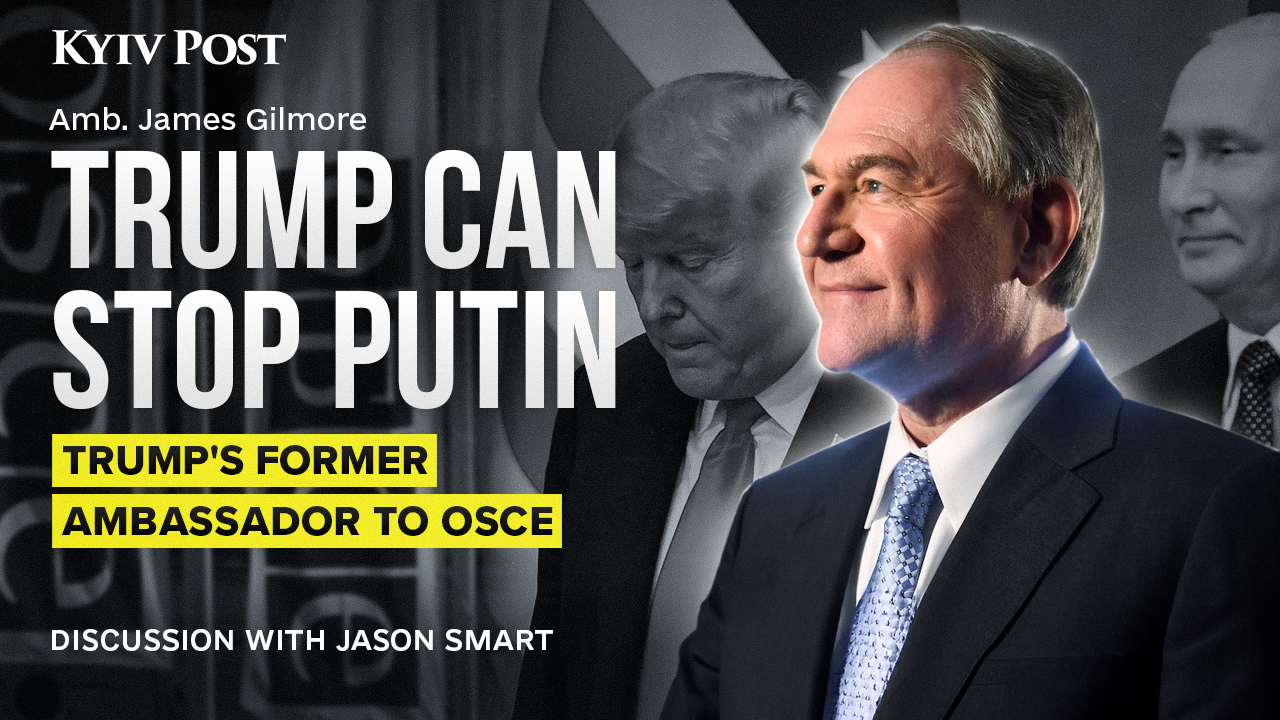The Russian army in Ukraine right now is more than double the size of the force that invaded almost two years ago, and the Kremlin is likely to be able to sustain its armies for the long term despite continuing massive battlefield manpower losses, a leading Ukrainian military observer said on Thursday.
Oleksandr Kovalenko, director of the Information Resistance military information platform, in an essay, said that Moscow’s troop strength inside Ukraine exceeds 400,000 soldiers and that even sustained casualties of 800-1,000 men a day, in periods of the most intense fighting, are unlikely to erode that figure significantly.
JOIN US ON TELEGRAM
Follow our coverage of the war on the @Kyivpost_official.
Ukraine’s national military intelligence directorate spokesperson, Andriy Yusov, in October 2023 placed the overall number of Russian troops in April 2023 at some 350-370,000 men and said that despite losses the figure rose over the next six months by at least 40,000 soldiers. Kovalenko’s independent analysis generally matched Yusov’s official figures.
Russian POWs found themselves in uniform in a war far more dangerous and unsuccessful than the recruiter back in Russia told them it would be
Overall Russian troop numbers in Ukraine possibly even fell below 300,000 in the summer of 2023 due to extremely bloody attacks against the city of Bakhmut, conducted daily for some four months, but once the city was captured and fighting intensity lessened, the Kremlin manpower stream was able to make up the losses, Kovolenko said.
Kremlin military planners currently deliver to Russian army training centers 20-25,000 men a month, Kovalenko wrote. According to Ukrainian General Staff estimates, confirmed Russian monthly soldier losses over 2023 have averaged between 15-20,000 men a month.

Russia Besieges Pokrovsk by Cutting Supply Lines – AFU Officer
Recent Russian assaults in October across the fighting line, and most concentrated against Ukrainian fortifications around the Donbas town Avdiivka, have spiked Russian short-term losses to more than 1,000 men a day. According to the independent tracker Ragnar Gudmundsson, Russian personnel losses over the past week hit a wartime record high.
According to both Ukrainian and Russian news reports, Kremlin military planners have succeeded in finding enough replacements by publicizing a narrative of continued Russian military success in Ukraine, via mass forced conscription of men with limited legal rights like felons in prison and illegal migrants, and by offering – by the standards of Russia’s weak economy – high salaries to residents of poor regions with high unemployment, in exchange for joining up.
First-hand accounts by POWs finding themselves in uniform in a war far more dangerous and unsuccessful than the recruiter back in Russia told them it would be are widely documented and available in open sources, and in rarer cases in interviews with independent Ukrainian media.
In September, Vladimir Tsymlyanskyi, Deputy Head of the Organizational and Mobilization Department of the Russian General Staff, said Russian army leadership has its personnel situation well in hand and expects to fill future manpower needs in Ukraine via volunteers of whom, he claimed, there are plenty.
“Those wishing to enter military service under a contract and who have signed contracts for military service in the Armed Forces of the Russian Federation, as well as volunteers who have decided to participate in a special military operation, are sufficient to perform the assigned tasks (in Ukraine),” Tsymlyanskyi said. The General Staff has no plan to mobilize reserves or send conscripted soldiers to Ukraine, he said.
Although the Russian military appears on track to be able to sustain a 400,000+ member force in Ukraine for the long term, over time as losses mount troop quality and morale will continue to deteriorate, because as professional officers are killed or wounded, formations and combat unit strength shifts from skilled soldiers to men less enthusiastic about fighting in Ukraine, like reservists and men volunteering for stable income, Kovalenko said.
Shrinking numbers of Russian army fighting vehicles, artillery pieces and artillery ammunition have been widely documented by Russian military bloggers and even state-controlled media has acknowledged the shortages. According to Kovalenko, Russian combat vehicle numbers, particularly tanks and infantry fighting, are only 30 percent of what formations in the field should have been assigned.
In fighting in the Avdiivka sector in October and November, according to Ukrainian combat video and individual soldier accounts, Russian area commanders kept to a strategy of launching soldiers aboard tanks and armored personnel carriers at Ukrainian positions and visibly, once the combat vehicles were disabled, sending soldiers on foot in continued attacks.
Even if Moscow and Petersburg offered three million rubles upon signing an army contract, people will not go fight, and that will be the end of it.” – a Russian Milblogger
Kovalenko said the trend of a Russian army increasingly incapable of sophisticated attacks, and falling stocks of weapons and ammunition, would continue. Future Russian combat units will become less and less skilled and more likely to suffer heavy casualties, and the Kremlin is unlikely to find a way to solve the problem, he said.
In a Nov. 16 article called “False Stability,” the popular Russian military blogger Dva Maiora warned of soldier losses potentially reaching a critical mass and a rising risk manpower strength will collapse because of the dominating, but inaccurate, Moscow official line that the war in Ukraine is going well. He wrote that Kremlin spin doctors’ unwillingness to tell Russia’s citizens the truth about the war against Ukraine, and the sacrifice in men and lives necessary to defeat Kyiv, will end badly for the Russian military in the form of no one left to go fight.
“Now answer me, if a person watched your news reports, why should he go and sign a contract with the Ministry of Defense?” Maiora wrote.
“His family is not in danger, ‘everything is fine’ at the front. Even if Moscow and Petersburg offered a one-time payment of at least three million rubles [$33,600] upon signing an army contract, people will not go (fight), and that will be the end of it.
“Is the fact that some of our [Russian] regiments have been wiped out and filled up with replacements seven times over unknown to you, respected information professionals? What are you doing in (your) Moscow studios?” the Russian milblogger said in part.
You can also highlight the text and press Ctrl + Enter








